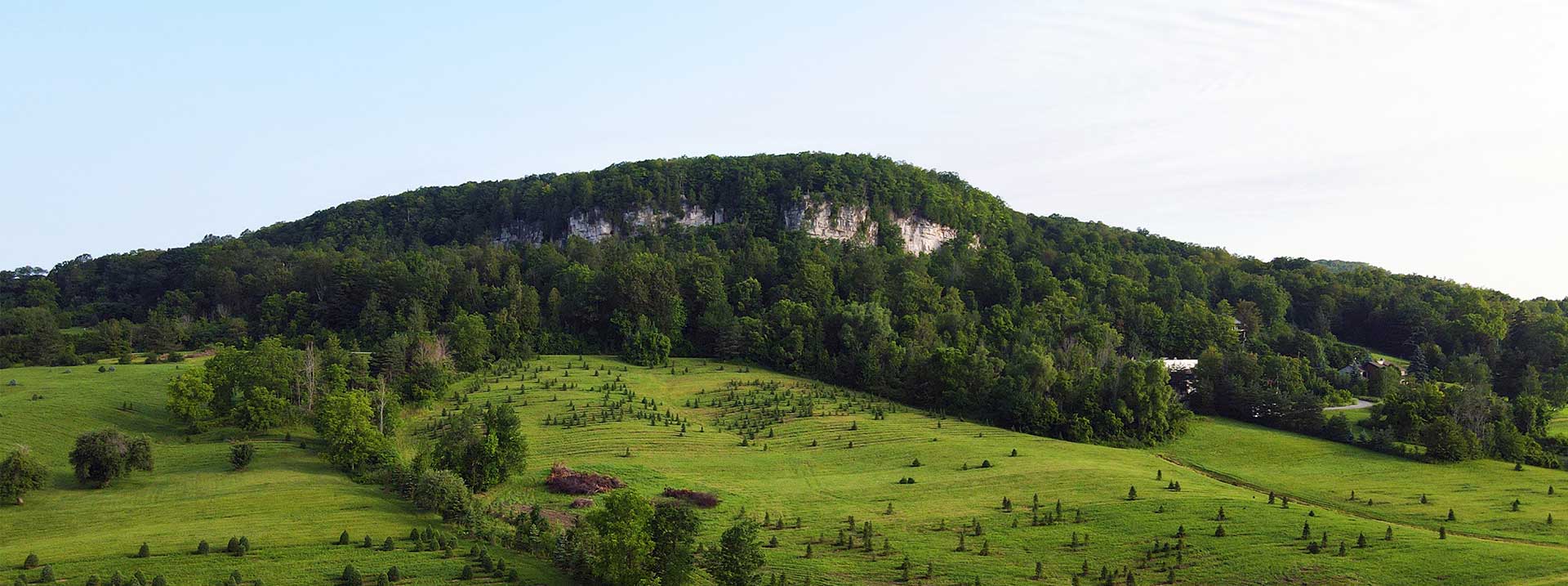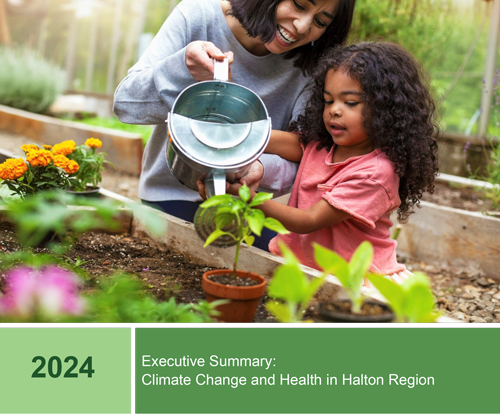Climate Change and the Environment
Climate Change and the Environment
Our commitment to climate action
Halton is not immune to the impacts of climate change. The region has already witnessed many severe weather events such as floods, high winds, tornadoes, ice storms and extreme heat and cold. As a corporation we are committed to addressing climate change and transitioning to a resilient, net-zero future.
We are optimistic as we face the global challenge of climate change and will utilize resources and expertise to achieve a climate transition that ensures a strong, healthy, and resilient organization that is equitable, diverse, and inclusive. By reducing our greenhouse gas (GHG) emissions, adapting our services and supporting our community, we are working to make strides to both mitigate and adapt to climate change.
What we’re doing about climate change
On , Halton Regional Council joined municipalities across Canada in declaring a climate emergency, strengthening Halton's commitment to protecting and preserving our natural environment while also acknowledging the impact that climate change will have on the future. We have taken action by:
Our Corporate Climate Action Plan
Halton Region’s Corporate Climate Action Plan is a significant milestone in in our climate response and we are on a mission to net zero corporate GHG emissions by 2045.
The Plan is the first of its kind at Halton. It includes four themes and identifies key actions we are taking as an organization over the next 20 years, which include:
- measuring, tracking, monitoring and mitigating our GHG emissions;
- concluding a renewable energy generation study;
- electrifying (rightsizing) the Region’s fleet vehicles;
- exploring the advancement of a carbon budget; and
- advancing partnerships that align with Regional climate change initiatives.
Our progress
In this first year of implementation of the Corporate Climate Action Plan, there has been a focus on laying a strong foundation for the work ahead as well as advancing “on the ground” projects with direct results. A full inventory of 2024 climate action initiatives can be found in our Corporate Climate Action Progress Report (PDF File).
Track our Progress towards Net Zero!
Highlights of progress made towards achieving the Goals and Actions outlined in the Corporate Climate Action Plan include:
2024 – 2028 Energy Conservation and Demand Management Plan
Halton Region’s 2024 - 2028 Energy Conservation and Demand Management (CDM) Plan builds upon our past successes and introduces new targets and actions to further reduce our GHG emissions. Our organization-wide approach to energy management aligns with the actions and measures set out in the Region’s Strategic Business Plan and our Corporate Climate Action Plan.
Climate Change & Health in Halton Region Report
As a recommended action under the Climate Ready theme of the Corporate Climate Action Plan, Halton Region Public Health completed the Climate Change and Health in Halton Region report. The primary focus of the report is to identify priority populations, understand patterns of climate-related vulnerability, provide baseline health information, and outline existing adaptive capacity.
The Climate Change and Health in Halton Region report covers seven key climate-related health impact categories of concern: extreme temperature; UV radiation; extreme weather; food and water-borne illnesses; food systems and food security; air quality; and vector-borne disease.
The six Climate Change and Health in Halton Region highlight reports below provide a high-level overview of these impact categories. An executive summary that combines all the highlight reports into one document can be found here (PDF File).
What you can do about climate change
How does our community contribute to Climate Change?
Proportion of Halton emissions produced by sector:
- Buildings
56% - Transportation
36% - Industrial
4% - Waste
3% - Agriculture
1%
The Atmospheric Fund – Halton Carbon Emissions Inventory Report 2023 (external link)
Working with Community and Partners
Partners for Climate Protection Program
We are proud members of the Partners for Climate Protection (PCP) Program (external link). The PCP Program is a national network of over 500 municipalities who are taking action against climate change to reduce local greenhouse gas emissions. We are proud to have achieved all 5 milestones as shown in the visual below.
Supporting Municipal Climate Response
The Halton Community is committed to taking action on climate with the Region’s and local municipalities’ efforts leading the way. Learn more about our municipal partners long-standing and ongoing efforts below.
The Partners for Climate Change Protection (PCP) Milestones
- Create a baseline emission inventory and forecast
- Set emission reduction targets
- Develop local action plan
- Implement an action plan
- Milestone progress and reporting results
Climate action resources
An introduction to climate change
What is climate change?
Climate change refers to long-term shifts in temperatures and weather patterns. There is clear scientific consensus that human activities are currently responsible for our changing climate. Scientists have showed that humans are responsible for virtually all global heating over the last 200 years. Burning fossil fuels generates greenhouse gas emissions that act like a blanket wrapped around the Earth, trapping the sun’s heat and raising temperatures.
Where is it happening?
Climate change is impacting the entire world. In Ontario, we are seeing hotter summers, warmer winters, and more storms and heavy rain and wind events. In Halton Region, the weather has and will continue to become warmer, wetter and wilder.
When will it affect us?
Noticeable changes are already occurring with impacts to infrastructure, water supplies, human health, agricultural yields, and much more. Without global and local action these consequences will continue to increase in intensity and frequency.
Who is affected by climate change?
All living things on the planet will be affected by climate change through changes to their ways of life and habitats. The rapid rate at which climate change is progressing will make it difficult for humans, animals, and plants to adapt and respond to the changing conditions they face.
Climate resources
- Clean Air Partnership (external link)
- The Atmospheric Fund (external link)
- Intergovernmental Panel on Climate Change (external link)
- United Nations Climate Change (external link)
- NASA – Global Climate Change (external link)
- NASA – ClimateKids (external link)
- Climate Atlas of Canada (external link)
- The Climate Dictionary (external link)


